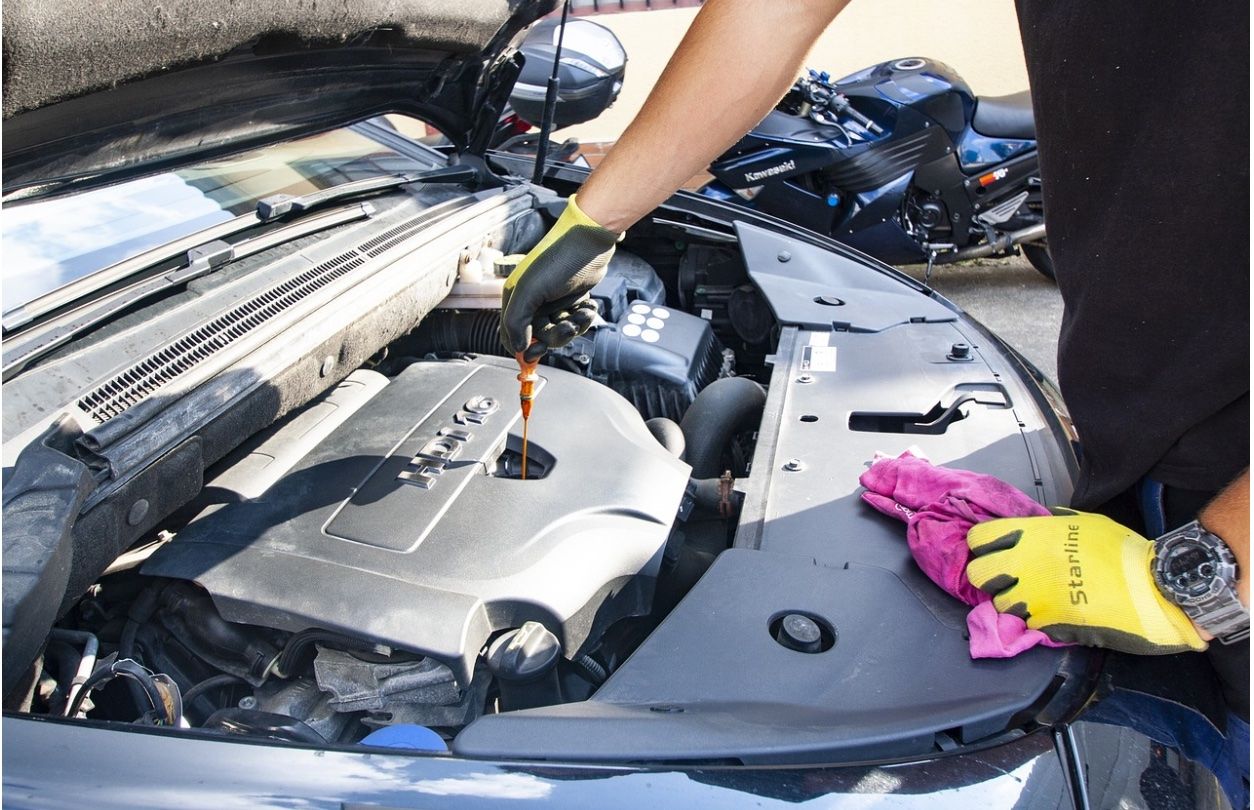Embarking on the journey of car maintenance can feel overwhelming, but fear not! You're about to learn the simple and essential steps to keep your vehicle running smoothly. With this beginner's guide, you'll master the fundamentals of car care, ensuring the longevity of your ride. Get ready to roll up your sleeves and become your automobile's best ally!
Regular Oil Changes
Regular oil changes are the lifeblood of vehicle maintenance and are crucial to ensuring the longevity and performance of your car's engine. Engine oil's primary function is to lubricate the moving parts within the engine to prevent excessive wear and tear resulting from friction. Lake County drivers never miss an oil change in Libertyville because they know how, over time, it breaks down due to the high temperatures inside the engine and can become contaminated with dirt and debris from the engine and environment. This deterioration diminishes the oil's efficiency, leading to inadequate lubrication and potentially severe engine damage.

By changing it regularly, you safeguard critical components such as the crankshaft, connecting rods, and camshaft, as well as maintain the hydraulic function of the oil in variable valve timing systems. Moreover, fresh oil helps to cool the engine by absorbing heat and acting as a sealant to maintain adequate pressure within the engine. In essence, sticking to a prompt oil change schedule is a small investment that significantly contributes to your vehicle's health and reliability.
Tire Maintenance
Maintaining your car tires is essential for the safety, efficiency, and longevity of your vehicle. Regularly inspect tires for wear and tear, ensuring they have sufficient tread depth — at least 2/32 of an inch — to maintain proper traction on the road.
Tires should be inflated to the manufacturer's recommended pressure levels, listed in the vehicle’s manual or on a placard inside the driver's side door, as underinflation can increase fuel consumption and lead to uneven wear, while over-inflation can cause tires to be more susceptible to damage from road debris. Rotate your tires every 6,000 to 8,000 miles to promote even tire wear and extend their life. Proper tire maintenance not only secures your safety but also preserves your car's handling and optimizes fuel economy.
Fluid Checks
Every car contains various fluids essential for it to function. They aid in lubrication, cooling, and cleaning of different systems. Without them, your vehicle would quickly break down. These are the following fluids:
- Engine oil
- Coolant and antifreeze
- Transmission fluid
- Brake fluid
- Power steering fluid
- Windshield washer fluid
- Differential fluid
- Battery electrolyte (for non-sealed batteries)
Fluid checks serve different functions — from lubricating engine parts to keeping brake mechanisms responsive. Neglecting these can result in increased friction and overheating, leading to mechanical failures and expensive repairs. Fluids also degrade over time; thus, regular checks are necessary to assess quality and levels.
For example, low coolant can cause your engine to overheat, while insufficient brake fluid might lead to brake failure. Maintaining proper fluid levels protects vital car components, mitigates the risk of breakdowns, and promotes vehicle longevity, making fluid checks a non-negotiable aspect of responsible car ownership.
Air Filter Replacement
A clogged air filter restricts airflow to the engine, leading to reduced performance, higher fuel consumption, and increased emissions. Air filters trap dirt and debris, which over time can accumulate and impede engine function. Therefore, it's vital to replace your air filter every 12,000 to 15,000 miles.
To change it, first, locate the air filter housing under the hood. It's usually an easy-to-remove black plastic box. Simply open the housing, take out the old filter, and insert the new one in the same orientation. Ensure the housing is secured back properly. If you’re struggling with this, reach out to a professional who will do it quickly and without mistake. Regular replacement of the air filter will not only improve your car's efficiency but also protect the engine from harmful contaminants.
Battery Care
Proper battery care is critical to car maintenance as it ensures the reliable starting of your vehicle and powers all of its electronic components. A well-maintained unit secures uninterrupted performance. To maintain your battery, keep the terminals clean to prevent corrosion, which can interrupt the electrical connection. Check the battery's charge level with a voltmeter regularly, especially in extreme temperatures, as heat can cause the battery fluid to evaporate, while cold can diminish its capacity.
If the battery is not a sealed unit, inspect the electrolyte levels and top them up with distilled water as needed. Secure the battery firmly - vibrations from driving can damage the internal components. Taking these steps will extend your battery’s lifespan, reduce the chances of being stranded with a dead battery, and ensure your car's electronic systems function correctly.
Cleaning
Keeping your car clean protects the vehicle's paintwork and undercarriage against rust and other damage. Road salt, dirt, and industrial fallout can all cause corrosion over time. Regular washing removes these contaminants, preserving the exterior finish and potentially enhancing the car's resale value.
When cleaning, use a car-specific soap, not dish detergent, which can strip protective wax. Use a microfiber cloth and a two-bucket method — one for clean, soapy water and another for rinsing the cloth to avoid scratching the paint with debris. Lastly, don’t forget to clean the undercarriage, especially after driving on salted roads in the winter, to protect against rust.
Routine Inspections
These regular check-ups can uncover issues before they escalate into costly repairs or, worse, lead to a breakdown or accident. Inspections typically cover critical systems such as brakes, suspension, and exhaust, as well as the integrity of hoses and belts, which can deteriorate over time. By catching problems early, you maintain the car’s performance and safety on the road.
Furthermore, consistent inspections ensure your car meets emission standards, which is essential for environmental protection and legal compliance. Ultimately, routine inspections contribute to extending the lifespan of your car and preserving its value, saving you time and money in the long run.

As you embrace this journey of car maintenance, remember that these steps are your gateway to a reliable and efficient ride. Stay proactive in your upkeep routine to avoid costly repairs down the road. By caring for your vehicle, you ensure a smoother, safer drive every day. Keep this guide handy, and take pride in maintaining your car's health — it's truly worth the effort!




